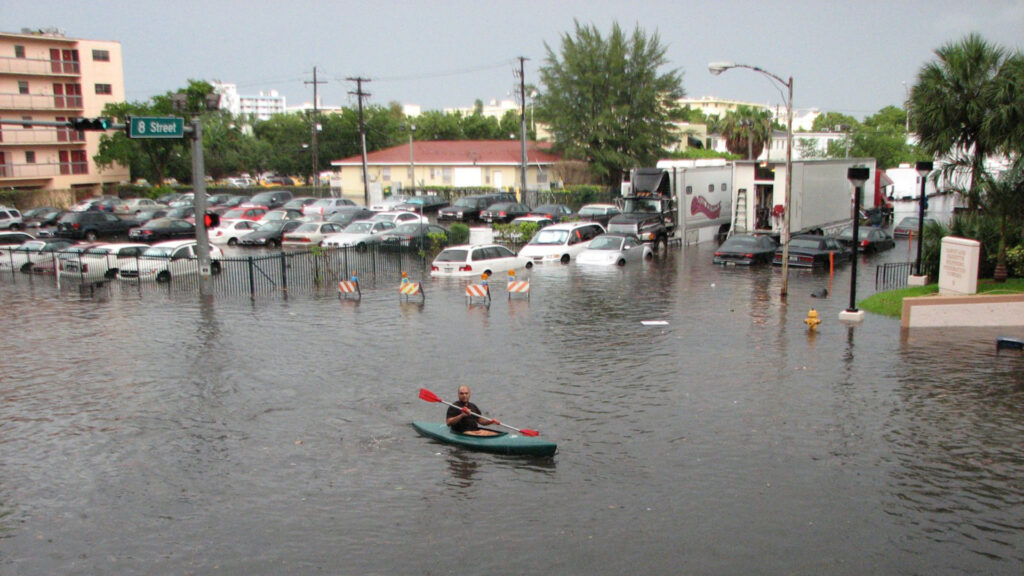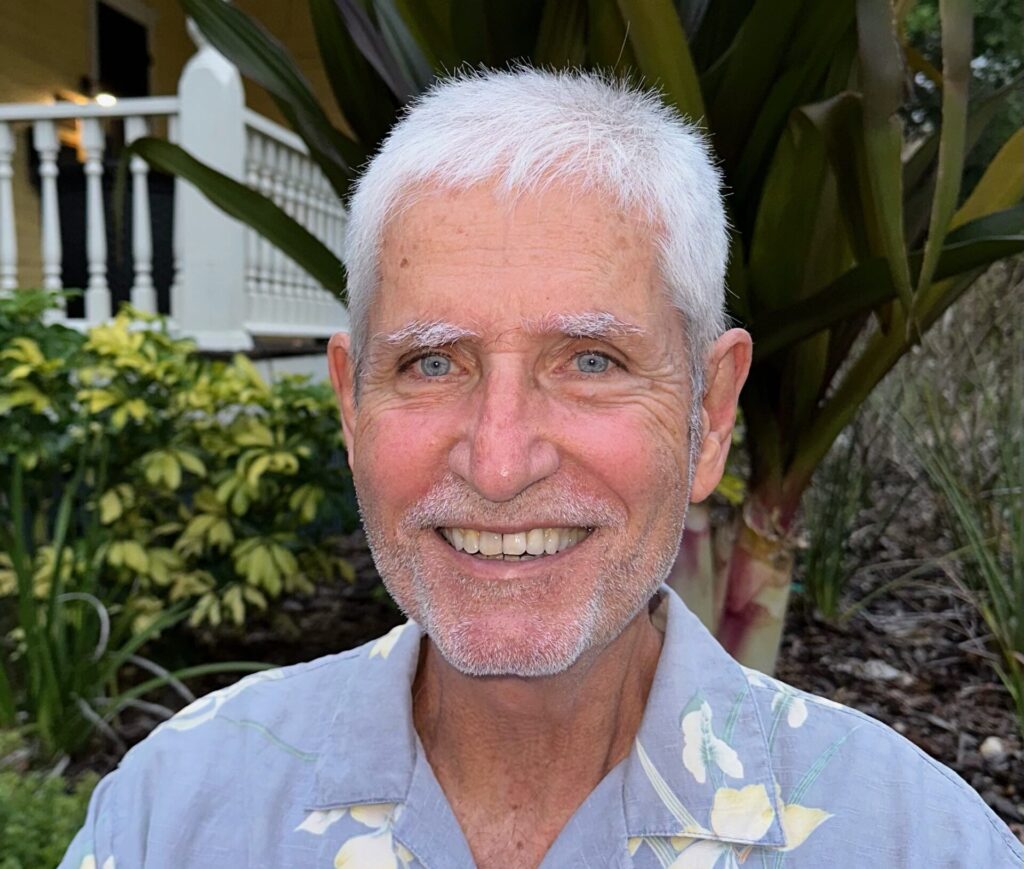By Jeff Dorian, Orlando Citizens’ Climate Lobby
My family moved to Miami from Pittsburgh, Pennsylvania, in 1962. Avoiding frozen winters united my family with millions of others continuing this migration today. It was an exciting time.
During my teen years, we lived close to the beach. I spent many enjoyable days at the ocean with friends surfing, fishing or boating. In the early 1980s after college, I lived and worked on Miami Beach, watching it transform from run-down elder apartments to an upscale Art Deco destination.
My daughter brought me back to Miami Beach in 2016. I’d been gone from the area for more than 30 years. She had returned from a postgraduate trial of living in San Francisco and found a great apartment on South Beach, working nearby. It was great to visit and see her living the life in glitzy South Beach.

On one of my visits, I drove through what they call “sunny day flooding” for the first time, seeing streets flooded over the sidewalks on a sunny day. Ocean water was coming up out of drains and sewers. It was just wrong!
I’d never seen this before. I’d read about rising seas but seeing it and driving through it hit home. I began to realize my daughter’s life was going to be challenged by the effects of climate change.
It’s not just the flooding; warning signs are widespread. Miami Beach’s eroded sand was renourished for the first time ever in 1968. It’s been renourished 10 times since then and sand sources offshore of the area are now depleted. Saltwater is seeping into Miami’s fresh drinking water supply.
When rounding a bend while flats fishing in Everglades National Park in the early 1990s, I surprised a small flock of iconic roseate spoonbills foraging near shore. With sea-level rise in the Everglades now making it more difficult for spoonbills to find food for their young, they’ve migrated north and inland to higher ground.
The thought of losing Miami to the sea and the cost of forced migration is anathema to all concerned residents. I began to learn more and join with others to raise awareness of solutions.
Guilt about my generation’s excesses, like our muscle cars with big block V-8 growling engines, had contributed to pollution warming the planet. I’ve become committed to promoting the transition to advanced clean energy, the solution to the greatest challenge of our time.
I learned the most effective thing I can do is to advocate to members of Congress to help America lead this transformation. Individual actions such as conserving and recycling are important for many reasons, but no matter how popular, they won’t move the needle enough. That’s why so many of us have joined other like-minded people in organizations to empower our voices.

There are South Florida groups for all persuasions promoting climate solutions: Urban Paradise Guild, Miami Climate Alliance and the CLEO Institute, to name a few. A conservative friend recently told me he wants to find the best (most effective) organization to devote his time and talents to. I googled conservative grassroots climate action organizations and came up with Citizens’ Climate Lobby (CCL), republicEn and the American Conservation Coalition, so there is, in fact, something for everyone.
A good example of the need for Congress to act is the challenge of newly constructed clean energy systems to transmit power to population centers, often hundreds of miles away. It presents a permitting nightmare, taking up to 10 years, if successful. Only the federal government has the ability to legislate speeding up this process, and it can be done.
Despite the divisiveness in today’s political rhetoric, the majority of our members of Congress are aware and concerned about the urgent need to act, as are voters of all parties. Miami native Sen. Marco Rubio and South Florida members of Congress will find support for their climate mitigation efforts with their voters. South Florida is ground zero. Let’s support our members of Congress to serve the common good for a livable future.
Jeff Dorian is co-leader of the Orlando chapter of Citizens’ Climate Lobby.
If you are interested in submitting an opinion piece to The Invading Sea, email Editor Nathan Crabbe at ncrabbe@fau.edu. Sign up for The Invading Sea newsletter by visiting here.



